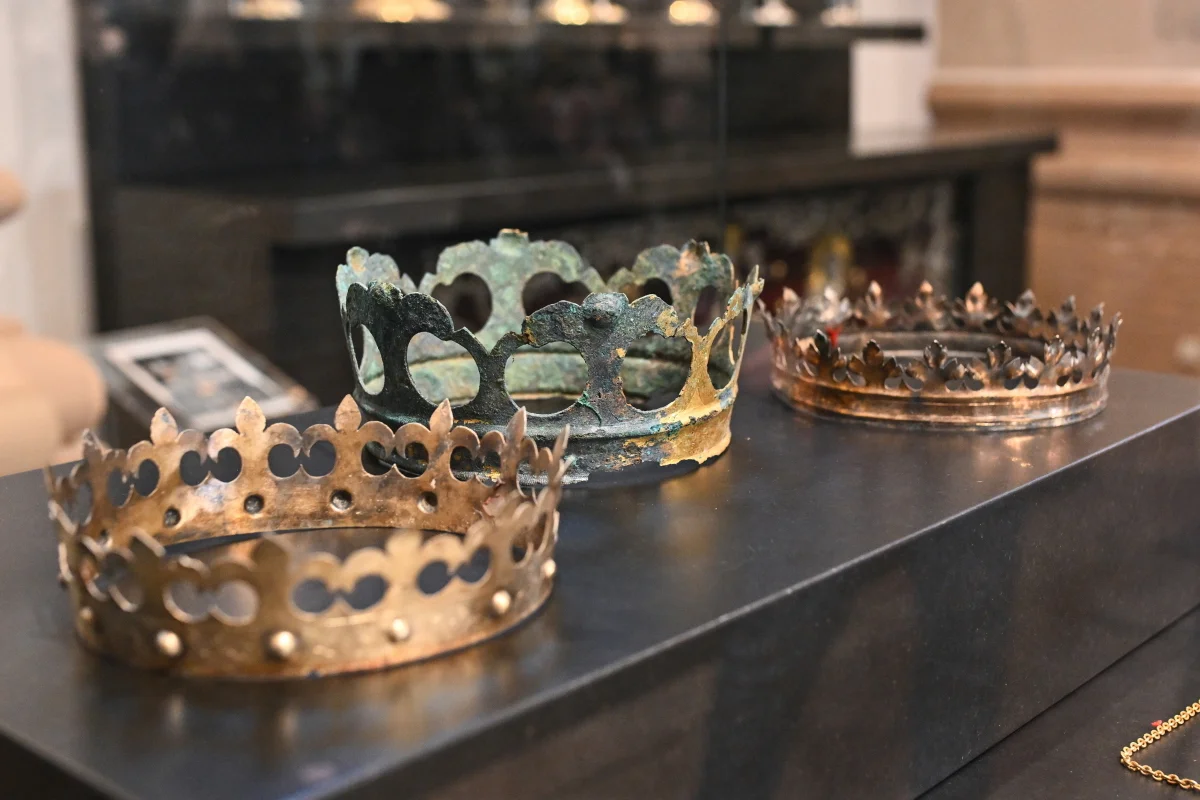Archaeologists have discovered a collection of lost treasures in the crypts of the Cathedral Basilica of St Stanislaus and St Ladislaus of Vilnius, located in the capital of Vilnius in Lithuania.
The Vilnius Cathedral, the primary Catholic cathedral in Lithuania, has served as the site for inauguration ceremonies of Lithuanian monarchs since the early 15th century AD.
The discovery was unveiled during a press conference at the Museum of Religious Heritage, where archaeologists revealed a hidden chamber within the cathedral crypts.
The chamber contained the grave insignia of prominent rulers of Lithuania and Poland, including Alexander Jagiellon, as well as Elizabeth of Habsburg, the first wife of Sigismund Augustus, and his second wife, Barbara Radziwiłł.

Among the treasure are several funerary crowns, including the lost funerary crown of Alexander Jagiellon who ruled as the Grand Duke of Lithuania from 1492 and King of Poland from 1501.
Also recovered is a medallion, a chain, the ring and coffin plaque of Elizabeth of Habsburg, as well as the funerary crown, sceptre, royal orb, three rings, and two coffin plaques of Barbara Radziwiłłówna.
“The discovered grave insignia of Lithuanian and Polish rulers are priceless historical treasures, symbols of the long tradition of Lithuanian statehood, signs of Vilnius as the capital and magnificent works of goldsmithing and jewellery,” said Vilnius Metropolitan Archbishop Gintaras Gruszas.

According to experts, the royal regalia were intended to be part of the grave insignia upon the death of European rulers, which will now be restored and exhibited in the future.
The secret cache is believed to have been created for safe-keeping during the outbreak of World War II and the German–Soviet Boundary and Friendship Treaty, placing Lithuania under Soviet control and the establishment of the Lithuanian SSR.
Header Image Credit : PAP/Valdemar Doveiko
Sources : Science In Poland (PAP)





